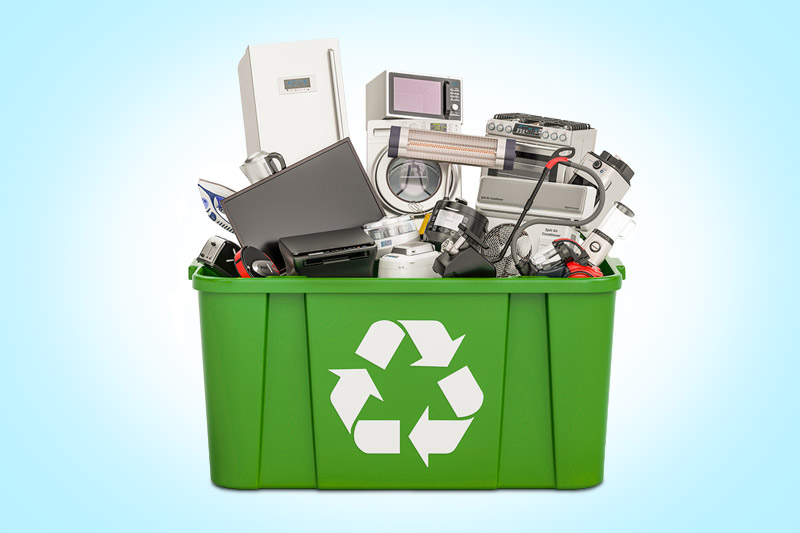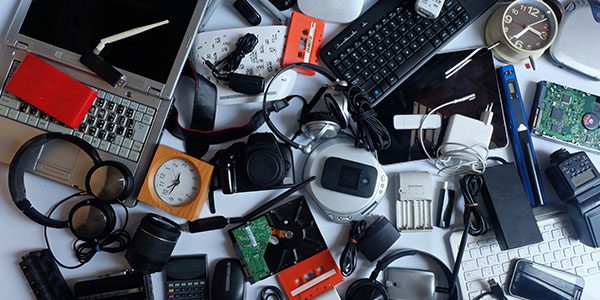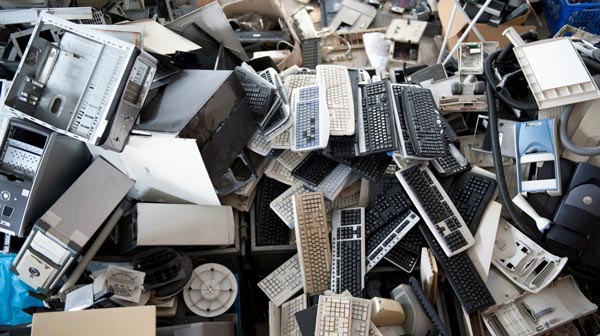Companion with R2 Certification Recyclers: Safeguard Data and Protect the Setting
Companion with R2 Certification Recyclers: Safeguard Data and Protect the Setting
Blog Article
Elevate Your E-Waste Management With R2 Certification: an Extensive Overview
One trick technique to boost e-waste monitoring practices is by attaining R2 certification. By checking out the benefits and processes linked with R2 qualification, a much deeper understanding of just how it can revolutionize e-waste management strategies arises, shedding light on a course towards sustainability and moral disposal methods.
Value of E-Waste Monitoring

When e-waste is not managed correctly, these harmful materials can permeate right into the ecosystem, causing harm to wildlife and possibly entering the food cycle, presenting threats to human wellness. Furthermore, the incorrect disposal of e-waste adds to pollution and greenhouse gas exhausts, intensifying climate modification and ecological degradation.

Advantages of R2 Qualification

First of all, R2 certification boosts reliability by showcasing a company's commitment to sustainable practices. It ensures clients, partners, and stakeholders that the business complies with rigid criteria for e-waste management - r2 certification. This integrity can cause enhanced depend on and boosted connections with clients that focus on environmental obligation
Second of all, R2 accreditation aids reduce risks related to inappropriate e-waste disposal. By following the rigorous standards set forth by the certification, organizations can minimize the chance of information breaches, environmental contamination, and lawful repercussions. This positive method safeguards the firm's reputation and minimizes prospective responsibilities.
Finally, R2 accreditation shows a dedication to ecological stewardship - r2 certification. By properly handling electronic waste with accredited processes, companies contribute to the preservation of resources, reduction of pollution, and promotion of a circular economic situation. This dedication not just profits the setting however likewise lines up with progressing consumer expectations for sustainable company techniques
R2 Qualification Refine Summary
Having developed the advantages of R2 accreditation in promoting reliability, risk mitigation, and environmental stewardship, it is crucial to now describe the thorough procedure included in acquiring this accreditation. The R2 qualification procedure begins with a detailed testimonial of the organization's functional policies and procedures to make certain conformity with the R2 standard. This initial evaluation is critical in determining any kind of spaces that require to be attended to before continuing further.
As soon as the company's practices straighten with the R2 conventional requirements, an independent third-party auditor conducts an on-site audit to evaluate the execution and efficiency of these techniques. This audit includes a detailed review of documents, meetings with personnel, and physical inspections of facilities to confirm compliance.
Complying with a successful audit, the organization gets a certification choice based on the auditor's searchings for. If approved, the organization is given R2 certification, showing its dedication to responsible e-waste management. It is essential to keep in mind that keeping R2 qualification calls for recurring compliance with the criterion's demands and regular audits to ensure ongoing adherence to finest practices in e-waste recycling and disposal.
Trick Criteria for R2 Compliance
A necessary facet of accomplishing R2 conformity is guaranteeing that all digital waste (e-waste) handling centers fulfill strict environmental and safety criteria. To abide by R2 requirements, organizations should follow crucial criteria that concentrate on responsible e-waste administration techniques. These requirements include carrying out a recorded environmental, health and wellness, and security monitoring system, ensuring the safe and secure handling of data-containing tools, and conducting complete downstream due persistance to track the last location of e-waste products.
Furthermore, R2 conformity necessitates the correct like it screening, repair, and go to this website recycling of digital devices to expand its valuable life and lessen environmental influence. Facilities seeking R2 qualification must also prioritize worker health and wellness by giving required training, personal protective tools, and a risk-free workplace. Additionally, preserving in-depth documents of e-waste processing activities and routinely going through audits by recognized accrediting bodies are vital components of showing recurring conformity with R2 standards.
Effects of Sustainable E-Waste Practices
The implementation of sustainable e-waste techniques based on R2 compliance not only makes sure ecological and safety requirements are fulfilled yet also substantially influences the total lifecycle of digital items. By sticking to R2 standards, digital waste management procedures end up being much more effective, decreasing the ecological footprint of digital items. Sustainable e-waste methods help with the proper disposal of electronic components, ensuring that hazardous products are managed sensibly and do not wind up contaminating the environment.
In addition, lasting e-waste practices can contribute to job creation in the recycling and repair sectors, fostering financial development while promoting ecological obligation. Overall, the adoption of lasting e-waste methods under R2 certification serves as a vital step in the direction of attaining a much more environmentally lasting electronic devices sector.
Final Thought
In verdict, applying proper e-waste administration techniques is vital for ecological sustainability and source preservation. R2 certification plays an essential duty in ensuring responsible handling and disposal of digital waste. By sticking to the rigid standards established forth by R2 criteria, organizations can not only reduce their environmental effect but additionally add to a much more sustainable future for generations to come.
One key technique to raise e-waste management methods is by achieving R2 accreditation. By exploring the advantages and processes connected with R2 qualification, a deeper understanding of just how it can reinvent e-waste management techniques arises, shedding light on a course towards sustainability and ethical disposal methods.
The R2 certification procedure begins with an extensive review of the company's functional policies and treatments to make sure compliance with the R2 standard. If accepted, the company is given R2 discover this qualification, demonstrating its dedication to accountable e-waste administration. In general, the adoption of lasting e-waste techniques under R2 qualification serves as a vital step towards achieving a much more ecologically sustainable electronics market.
Report this page